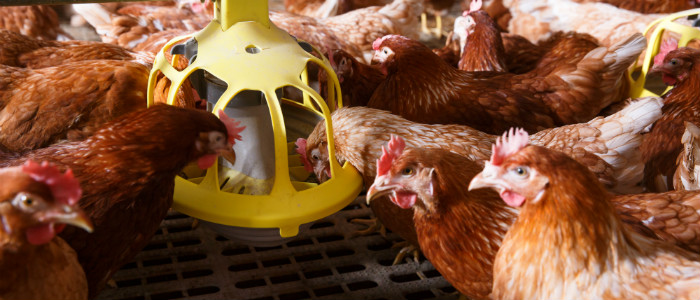
MEDIA STATEMENT 22 JUNE 2017
AVIAN INFLUENZA CONFIRMED IN MPUMALANGA
Following the outbreak of Avian Influenza that was announced in Zimbabwe on 2 June 2017, The South African Veterinary Authority was today notified on of high mortalities on a breeder flock in Villiers close to the Mpumalanga Provincial border.
Samples were collected on the farm and have yielded a positive result for a Highly Pathogenic Avian Influenza, H5N8. The Department has agreed with the company to euthanize the birds in affected houses in collaboration with the NSPCA.
The affected property has 12 self-contained sites with a total of approximately 285 000 birds, and so far only one self - contained site, with approximately 24 000 birds has been affected. As part of the emergency response, the farm has been placed under quarantine and Veterinary services will continue to monitor the farm.
The Mpumalanga Veterinary Authorities are on the farm, assisting with quarantine implementation, culling and disinfection of the farm. The affected farm is on the banks of the Vaal River and it is suspected that wild birds may be involved. The influenza is carried by live birds which make it difficult to control and contain to a particular area. We have intensified our early detection and requested owners to enhance their biosecurity in order to prevent contact with wild birds.
Vaccination against Avian Influenza is prohibited by law. There are several reasons for not allowing vaccination of chickens, and the most pertinent are that vaccinated birds mask the disease and therefore create an endemic situation; surveillance for absence of disease is also impossible in vaccinated birds as they all test positive.
The department has sent out notices to all poultry owners, outlining the biosecurity measures they have to take, and detailing how the surveillance will be conducted. This can be found on the DAFF and SAPA websites.
To report any high death numbers of wild birds please contact your local State Vet, Animal Health Technician or Extension Officers
Media enquiries:
Bomikazi Molapo 0788013711
Bomikazim@daff.gov.za
ADDITIONAL INFORMATION ON AVIAN INFLUENZA
1. What is bird flu?
a. Just like flu, it is a winter disease
b. It affects all types of birds, and some show signs more than others
c. It moves from chicken to chicken easily and very quickly
2. How do you stop it?
a. Owners of chickens should prevent contact with wild birds by avoiding
i. feeding chickens outside
ii. Leaving open water sources
iii. Leaving chickens roaming outside and picking up wild bird faeces
b. When chickens are sick, do not move them from the premises
c. Be careful of vehicles and people coming on to your premises from affected areas
d. When your chickens are sick, do not move eggs, chickens, bedding, manure and any other tools around and to other owners.
e. When your chickens are sick, put them in a locked up place and ensure they do not make contact with other chickens and wild birds; also make sure you are thoroughly clean before going to another premises with chickens.
3. Does it affect people?
a. Generally not; however, people that work closely with large numbers of chickens may contract the disease.
b. This type of bird flu is not known to have caused any death or serious sickness in people.
4. How do you see it?
a. The chickens will look sick and then they die in numbers higher than normal
5. What do you need to do?
a. Contact your local agriculture official to assist. The Department will pay for samples to rule out Avian Influenza if sent to the ARC-OVR through the State Vet office.



